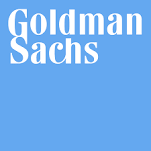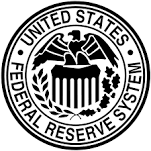The Federal Reserve fined one of the world’s biggest investment banks over $50 million for a lack of institutional control in their foreign exchange division.
The Fed announced a $54 million fine against Goldman Sachs for “unsafe and unsound practices in firm’s foreign exchange (FX) trading business.
 “The Federal Reserve Board on Tuesday announced that it has fined The Goldman Sachs Group, Inc., $54.75 million for the firm’s unsafe and unsound practices in its foreign exchange (FX) trading business.
“The Federal Reserve Board on Tuesday announced that it has fined The Goldman Sachs Group, Inc., $54.75 million for the firm’s unsafe and unsound practices in its foreign exchange (FX) trading business.
“The Board levied the fine for deficiencies in Goldman’s internal controls and oversight of traders who buy and sell U.S. dollars and foreign currencies for the firm’s own accounts and for customers. The firm failed to detect and address its traders’ use of electronic chatrooms to communicate with competitors about trading positions, including around benchmark fixes, and failed to detect and address the disclosure of confidential client information. The Board’s order requires Goldman to improve its controls and compliance risk management for the firm’s FX trading.”
While forex trading is usually under the purview of the Commodities Futures Trading Commission, the Fed has oversight power over all banks, including Goldman Sachs.
The Fed found that like with the forex scandal forex traders at Goldman Sachs were using secret chatrooms to telegraph trades with other traders.
Here’s part of the Federal Reserve’s order.
“The Firm lacked adequate governance, compliance risk management, compliance and/or audit policies and procedures to ensure that the FX Subsidiaries’ Covered FX Activities complied with safe and sound banking practices and applicable internal policies;
“Certain of the FX Subsidiaries’ FX spot market traders communicated with FX traders at other financial institutions through chatrooms on electronic messaging platforms accessible by traders at multiple institutions.”
According to the Federal Reserve, Goldman Sachs’ lack of institutional control led to four types of prohibited activities.
- disclosures to traders of other institutions of confidential customer information of the FX Subsidiaries
- discussions with traders of other institutions about anticipated FX benchmark fix-related trading;
- discussions with traders of other institutions regarding bid/offer spreads offered to FX customers; and
- trading strategies that raised potential conflicts of interest.
Along with the fine, the order also directs Goldman Sachs to within 90 days to submit a plan to improve internal controls including, “enhancement of comprehensive policies and procedures to ensure compliance with applicable U.S. laws and regulations by the Firm’s business lines that engage in Designated Market Activities, and a review of the Firm’s policies and procedures relating to the Firm’s Designated Market Activities, including conflict of interest policies, customer confidentiality policies, and a code of conduct or other statement of conduct or policies.”
Goldman Sachs also is expected to create, “a comprehensive and effective system of internal controls to monitor and detect potential employee misconduct in connection with the Firm’s Designated Market Activities, which shall include, but not be limited to transaction monitoring and communication surveillance that is commensurate with the level and nature of the risks inherent in the market.”









